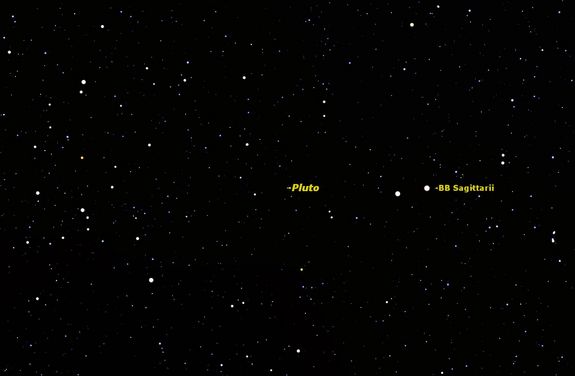If telescopes can see planets far away why can't they see Pluto?
2 Answers
I would say because Pluto is small and very far from the Sun.
Explanation:
A telescope is simply a tube with some lenses/mirrors that ,basically, collect light and send it to your eye.
If you look at a star it is good because stars emit light so they send light all around and inside your "tube". If you look at a planet you have a problem....planets do not emit light they reflect light of nearby stars (if present).
Now, Pluto is very far from our star and quite small so it reflects poorly.
Combine this with the fact that probably you have more luminous stuff near it that can hide it (it is like to distinguish the light of a candle when the candle is placed near a big arc lamp!). Also, to find Pluto among the background of brighter stars is quite a challenge!
Here it is one of the best shot I found:

Actually, telescopes can see Pluto and in general can't see planets in other solar systems.
Explanation:
Pluto is visible through an amateur telescope. It was discovered in 1930 by 23 year old Clyde Tombaugh by comparing photographs taken at different times of an area of the night sky and found an object which moved - Pluto.
Exoplanets, which are planets in other solar systems, are not bright enough to be seen through a telescope. Their existence is determined by looking for effects like a dip in the brightness of a star when a planet passes in front of it, or a wobble in a star caused by a planet's gravity.


